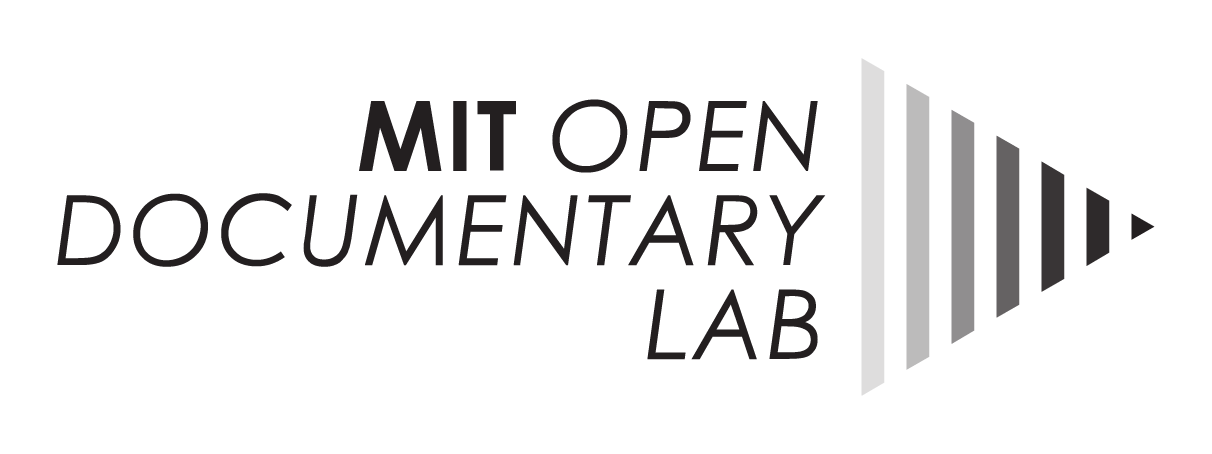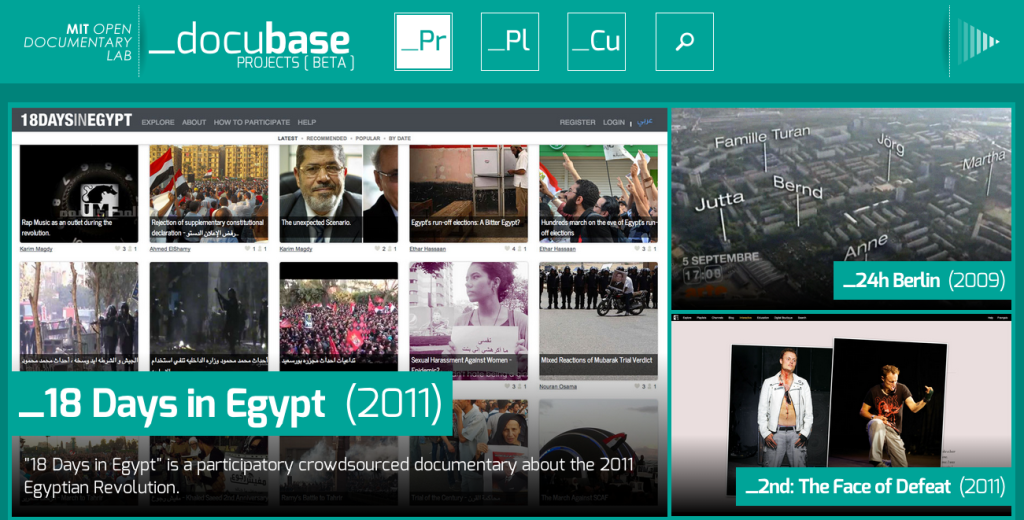
23 Nov _docubase
Few things can compete with the emergence of a new media practice for sheer innovation and unpredictability. Conventions, orthodoxies and routine have not yet set in. Virtually anything is possible. Consider the earliest years of film, radio and television, when media makers engaged in unparalleled levels of experimentation thanks to the absence of rules. Today, this untamed creative fervor can be found in the new documentary – a fast-emerging form that includes interactive, participatory and community-created fact-based storytelling.
As the community of new documentary makers and users explores imaginative forms, negotiates the challenges of collaborative authorship, and engages with its subjects in still surprising ways, we have an opportunity denied to the media of the past. No longer must we look back at those unconstrained moments of creativity from a nostalgia-tinted distance. Instead, we can learn from the past and record today’s nascent steps, collect and consider their many innovative directions, and in the process, expand and enhance meaningful participation in the new documentary community.
‘Unruly’ best describes the amazing documentaries that we’ve gathered together in _docubase. True, all share an interest in innovation, in tapping the potentials of digital technologies to tell their stories. But the similarity stops there. Interactive, collaborative, location-based, community-created, parts of larger trans-media experiences … the projects gathered here defy easy categorization. They are made by and with communities, journalists, citizen-activists, film and video makers, game-designers, community organizers, data-visualizers and ordinary people. Some production teams model their credits on the conventions of film, others on games, and still others invent new ways of describing their work. Why so complicated? Because we are witnessing a rare moment that is in equal parts creative and inchoate.
_docubase offers multiple ways of bringing order to this complexity:
1) We’ve collected a large number of projects that both exemplify and press the limits of the documentary in its many new forms. We’ve purposely challenged the documentary’s definitional limits, hoping to provoke discussion and user-suggestions for additional projects to include.
2) We’ve used an expansive set of tags (metadata) to access each project. These tags permit users to organize the database their way, creating from it new collections, pathways and patterns of coherence. We encourage suggestions from _docubase’s users for alternate and perhaps better tags.
3) Language matters, and the diverse terms currently used to describe the forms and functions of the new documentary reflect the sector’s complex genealogy. For this reason we will study how the _docubase community deploys language, including user-generated terms, seeking ways to enhance communication across the field’s many disciplinary divides.
4) Curation also plays an important role in opening up and bringing order to the database. A changing roster of prominent documentary makers, festival organizers, technologists and critics will share their top picks. Again, we are as interested in the play lists from _docubase’s users as we are from documentary specialists, and have designed the project to encourage participation.
As both a platform and an ongoing project, _docubase will keep pace with this rapidly changing field. New documentaries, freshly curated play lists and ever-changing contexts will enable users to transform the database into multiple, and multiply ordered collections. These collections and the ideas they stimulate offer ways to build a community of participants, to capture the unruly brilliance of our moment, and to envision the futures of the documentary.
Visit the _docubase here and let us know what you think!
William Uricchio
Professor of Comparative Media Studies
Principal Investigator, MIT Open Documentary Lab




